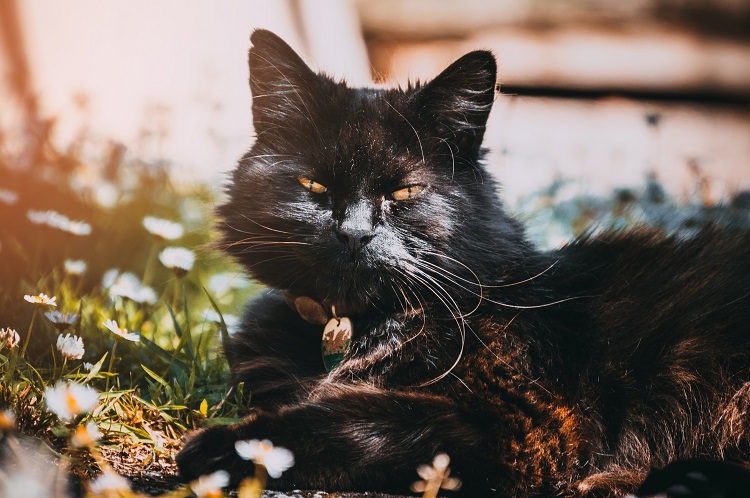
Spring and summer are the perfect seasons to spend time in the garden with your family and pets. However, your garden can contain things that can be dangerous for your pet. Here is some advice for keeping your pet safe in the garden.
Bee and wasp stings
As the weather starts to warm up, there is inevitably an increase in bees and wasps, creating a risk to your pets. Dogs are the most likely to be stung as they are inquisitive and playful in nature. Many stings will only cause minor discomfort and shouldn’t need a trip to the vet. Gently scrape the stinger away. Don’t use tweezers as this can in fact release more venom. Wrap in an ice pack to reduce swelling and help with the pain.
The risk can be more severe if your pet has an allergic reaction to the sting, especially if they have been stung several times or stung in the mouth or throat. If this is the case, then contact your vet immediately. Signs of an allergic reaction include excessive swelling, difficulty breathing, and general weakness.
Spring Bulbs
Many of us use the warmer weather to head into the garden and get planting, but did you know that spring bulbs are in fact toxic to pets? Eating spring bulbs causes a range of issues from vomiting and diarrhoea, to excessive drooling and feeling disorientated, and can even cause more severe issues such as heart problems. The main types of spring bulbs that are toxic include:
- Tulips
- Lilies
- Bluebells
- Hyacinths
- Daffodils
The easiest way to avoid these problems is to avoid having these flowers in your garden. There is a range of pet-friendly plants which make much better, safer options. Whilst toxic poisoning from bulbs is fortunately rare, eating or nibbling on spring bulbs can make your pet feel poorly. If you suspect your pet has eaten one, then contact your vet for advice.
Poisonous chemicals
Most households have a range of chemicals stored in our sheds or garages to use in our garden and we may not automatically think about the consequences of having them near our pets. For example, slug killer is something many of us have, however, if a cat or dog were to eat some of it, it can cause fits and twitching that can last several days. Fertilisers can cause vomiting and diarrhea if consumed by pets. Some households will have more severe chemicals as well such as rat poison. If a cat or dog were to consume this, it could result in excessive bleeding and can lead to severe vomiting, bruising, and weakness. Weed killers can also lead to severe dehydration, vomiting, difficulty in breathing, and even heart issues.
Before you let your pets out in the garden, ensure these harmful chemicals are stored out of reach. Also, try and avoid having these items in your home. You can now get versions of some of these products that are not toxic to animals, so always check the packaging first before purchasing.
With dogs, you can usually restrict them to your own garden, but this is a lot harder with cats. The difficulty with outdoor cats is that realistically they will roam where they want to and you will have no control over whose gardens they go into.
Garden Tools
Keen gardeners will have a range of garden tools to help with the tougher jobs. For example, lawnmowers, hedge trimmers, chainsaws, and more. Whilst some of these tools are not a direct threat to pets, some can be potentially extremely dangerous, so it is always best to keep your pets inside when you are undertaking these jobs. Whilst the potential danger of chainsaws is obvious, it can often be the noise the tools make that causes the problem. Cats in particular can become stressed when hearing loud, unexpected noises.
Compost
A compost heap can often be full of bacteria that can be potentially dangerous to pets. Therefore, ensure the compost heap is fenced off or placed in a proper compost bin that your pets cannot access to avoid them becoming ill.
Allergies
Pets can suffer from pollen, plant, and insect allergies just like humans. The allergies can cause hayfever-like symptoms such as itchy eyes that water easily, sneezing, or a sore throat. These allergies can also cause skin irritation. If you notice any of these symptoms, contact your vet. Whilst all dogs can develop these symptoms at any point, some dog breeds can be more susceptible to allergies such as English bulldogs.